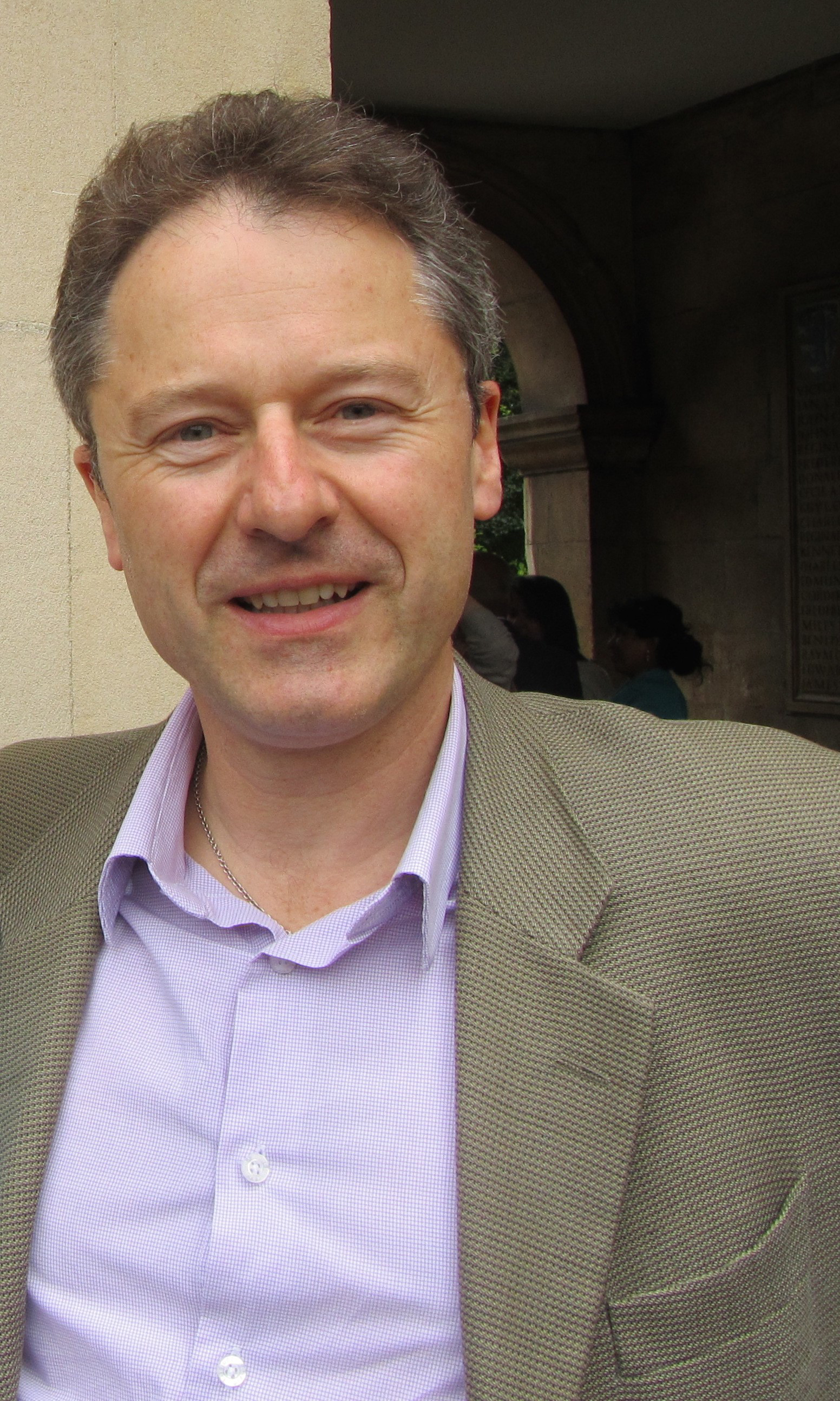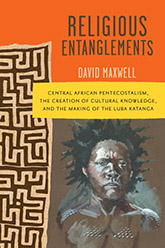|
Religious Entanglements
Central African Pentecostalism, the Creation of Cultural Knowledge, and the Making of the Luba Katanga
David Maxwell
Africa and the Diaspora: History, Politics, Culture
Neil Kodesh and James H. Sweet, Series Editors
“An original and lucid contribution to the study of missionary Christianity in colonial Africa, Religious Entanglements compellingly demonstrates the influence of missionary forms of knowledge on Africanist anthropology, history, art history, and philosophy. Through nuanced, historical, and context-specific research, it also furthers our understanding of the emergence of African ethnicities and African Christianity. With eloquent and precise prose, Maxwell makes a stunning contribution. This is one of the most compelling accounts of mission Christianity and African society in colonial Africa in over two decades.”
—David Gordon, Bowdoin College
A substantial engagement with cultural entanglement and knowledge creation
Under the leadership of William F. P. Burton and James Salter, the Congo Evangelistic Mission (CEM) grew from a simple faith movement founded in 1915 into one of the most successful classical Pentecostal missions in Africa, today boasting more than one million members in the Democratic Republic of the Congo. Drawing on artifacts, images, documents, and interviews, David Maxwell examines the roles of missionaries and their African collaborators—the Luba-speaking peoples of southeast Katanga—in producing knowledge about Africa.
Through the careful reconstruction of knowledge pathways, Maxwell brings into focus the role of Africans in shaping texts, collections, and images as well as in challenging and adapting Western-imported presuppositions and prejudices. Ultimately, Maxwell illustrates the mutually constitutive nature of discourses of identity in colonial Africa and reveals not only how the Luba shaped missionary research but also how these coproducers of knowledge constructed and critiqued custom and convened new ethnic communities.
Making a significant intervention in the study of both the history of African Christianity and the cultural transformations effected by missionary encounters across the globe, Religious Entanglements excavates the subculture of African Pentecostalism, revealing its potentiality for radical sociocultural change.
 David Maxwell is the Dixie Professor of Ecclesiastical History at the University of Cambridge and a professorial fellow at Emmanuel College in Cambridge.
David Maxwell is the Dixie Professor of Ecclesiastical History at the University of Cambridge and a professorial fellow at Emmanuel College in Cambridge.
Praise
“Religious Entanglements makes a major contribution to both African studies and the history of missions, thanks to its multiple perspectives, its concern with both contexts and comparisons, its interdisciplinary approach (from anthropology to photography), and its careful distinctions between different group responses to the mission. A most impressive study.”
—Peter Burke, Emeritus Professor of Cultural History, University of Cambridge
“A brilliant, capacious, field-defining book. Maxwell not only rewrites the history of evangelical Christianity in Central Africa; he also rethinks the nature and meaning of colonialism itself, illuminating the complex ‘entanglements’ through which Europeans and Africans co-created their worlds.”
—James Campbell, Stanford University
“An enlightening study of Pentecostal missionary activities in Central Africa from the late 19th to mid-20thcentury. . . Brimming with nuance and acute historical detail, this makes clear that the Luba reception of such missionaries as Burton was an active process of fusion and exchange.”
—Publishers Weekly
“Much more than mission history and far more immediately relevant to scholars of contemporary religion than that initial characterisation might suggest. It is an illuminating background to studies of Pentecostal and other contemporary Christian and Africanist religious movements. . . . Perhaps its most original aspect is a subtle analysis not only of the role of missionaries but also of indigenous Africans both in the establishment of African Christianity and in the creation and distribution of the cultural knowledge on which much early anthropology rested. . . . Impressive.”
—Journal of Contemporary Religion
“Brilliantly illustrates the complexity of the relationships forged between the Luba Katanga and Congo Evangelistic Mission (CEM) leaders between roughly 1915 and 1960 in the Belgian Congo. . . . The construction of Luba Christianity as related by Maxwell was a dynamic, uneven process that merits wide reading.”
—Journal of Religion in Africa
“A seminal work that offers a unique and groundbreaking perspective. . . . A significant contribution to Pentecostal historiography in Africa.”
—Reading Religion
Table of Contents
Contents
List of Illustrations
Acknowledgements
List of Abbreviations
Introduction
1. Primitivism and Pragmatism in the Making of the Congo Evangelistic Mission
2. Luba Transformations prior to 1910
3. Continuity and Change in the Luba Christian Movement
4. Missions and the State: The Challenge of Pentecostalism
5. “Acquainting Oneself with the Enemy”: Making Knowledge about Africa
6. Pathways to Knowledge
7. The Creation of Lubaland: Missionary Science and Christian Literacy in the Making of the Luba Katanga
8. Finding God among the Luba: Missionary Conversions and Epiphanies
Postscript: Postcolonial Developments
Conclusion: Pentecostalism, Knowledge Creation, and Religious Change
Notes
Bibliography
Index
|

Larger images
New in Paperback!
November 2023
LC: 2021041582 BV
352 pp. 6 x 9
27 b/w illus., 5 maps
|

